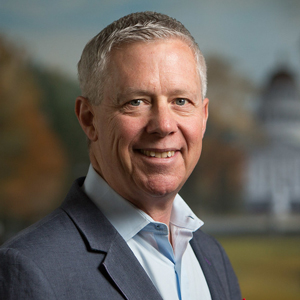
Cross posted in The Sacramento Bee
For good or ill, the new administration in the nation’s capital has upended the national policy debate, requiring attention of California politicos and diverting them from our own pressing needs.
From a distance it seems the California economy couldn’t do any better. Economic output is world-class and statewide employment growth is the envy of the nation. We’re creating wealth faster than any time since the Incan conquest.
But behind these marquee numbers lurk a complicated mix of prosperous and desperate. Even among huge wealth and employment gains, millions of families cannot reach the California dream.
One of three Californians is on Medi-Cal, and more than half of public schoolchildren receive subsidized school lunches.
If the 36 counties in rural, mountain and Northern California were a separate state, their aggregate unemployment rate would be the highest in the country.
On the other hand, unemployment in the 22 coastal and metropolitan California counties is among the lowest of all industrial states.
But all is not well in wealthy California. High housing costs have impoverished wage earners. One-bedroom apartment rents exceed 30 percent of median income in coastal metro areas.
Even when employees can find affordable housing away from the metropolis, the long and slow commute adds yet another financial burden and social stress.
The surest path to economic success is a good education, but the California fault line divides educational attainment.
In what cannot be a surprise, the Bay Area has the nation’s top-ranked economy and among its highest educational attainment. Just 80 miles inland, five regions in the San Joaquin Valley are at the bottom in educational attainment and economic output.
Increasing opportunity and offering everyone a slice of the pie is within reach of state leaders, starting with these goals:
Invest in transportation and water infrastructure. California’s public works are deteriorating. Fuel-stingy autos clean our air but starve our roads. Lawmakers must heed the governor’s call to ramp up highway and transit funds and modernize fee-for-service financing. State leaders must also commit to a safe, reliable water system, including storage and Delta conveyance.
Increase housing supply. The only solution to the high cost and severe shortage of housing is to increase supply, but California’s land use laws undermine this imperative. Policymakers now favor more housing in dense, urban areas, but have not in turn reduced the inevitable permitting, zoning and litigation burdens, such as the California Environmental Quality Act.
Make energy more affordable. Higher energy prices will continue to add to California’s cost of living and detract from our competitiveness unless climate change laws incorporate market-based approaches to reduce greenhouse gas emissions. The Legislature must adopt a cap-and-trade mechanism to replace command-and-control regulations to demonstrate that climate change regulations can be effective and affordable.
Update labor laws and reduce litigation. California’s employment laws and regulations have not kept pace with the evolution of the workplace, technology-based services or workers’ needs. State leaders must update archaic regulations that hinder workplace models that use independent contractors and discourage flexible, family-friendly work design. We must protect the ability of employers and employees to resolve legitimate disputes quickly and inexpensively through arbitration.
Invest in education and a skilled workforce. Besides the weather, California’s greatest competitive advantage is our skilled workforce. The Legislature should improve state support for universities to restore our qualitative advantage, and continue investment in high school work-based learning initiatives, which allow students to apply classroom learning to gain real-world experience.
California is a wealthy state with great natural and intellectual resources. It is within the power of state leaders to foster growth and increase opportunity, no matter the crosscurrents blowing in from Washington.
Loren Kaye is president of the California Foundation for Commerce and Education, a think tank affiliated with CalChamber.


